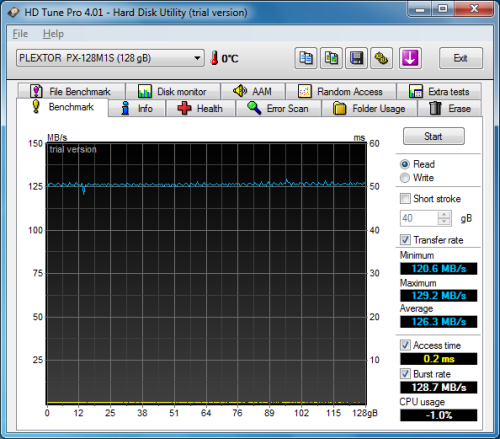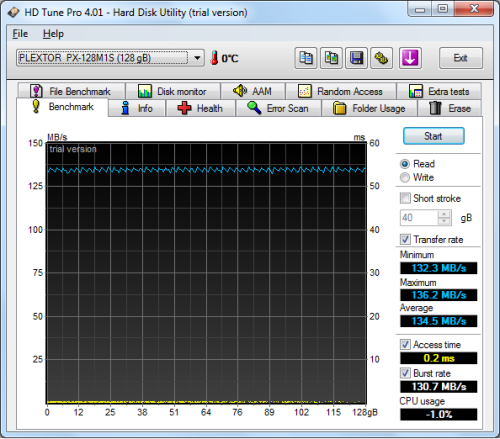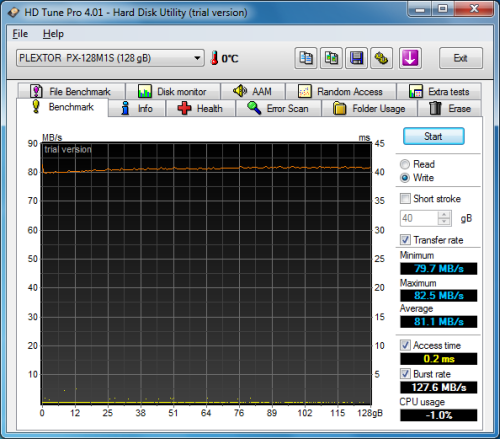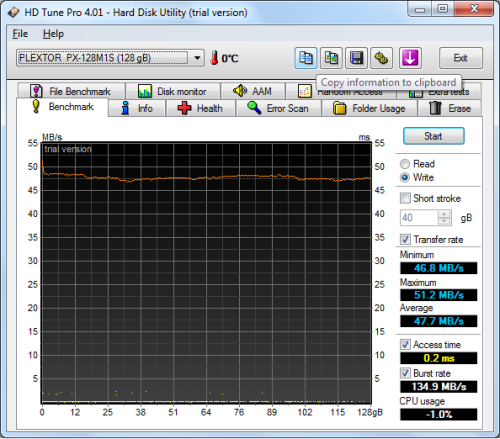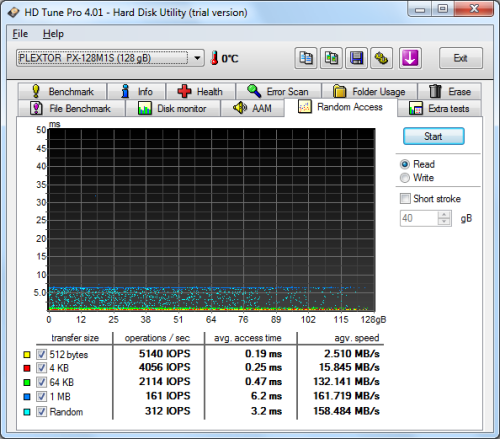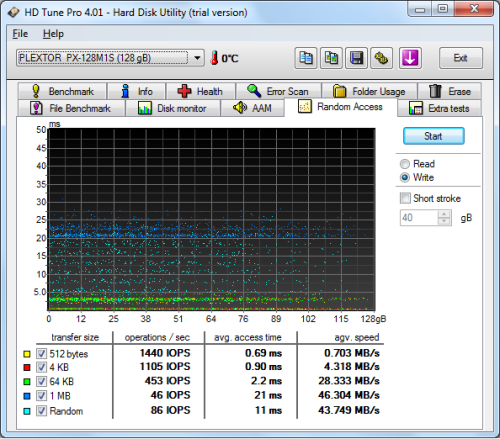HD Tune Pro 4.01:
Next, I ran a series of tests using HD Tune Pro. This hard disk utility measures a drive's performance by testing its sequential read and write speeds as well as its access time, burst rate and CPU usage. For this review, I'm also going to use it to benchmark the PX-128M1S's random read and write speeds, random access times and the number of operations per second.
In its "clean" state, the PX-128M1S had average read and write speeds of 126.1 MB/s and 81.1 MB/s, respectively. Once again, the drive was able to maintain these read speeds after continued use. However, its average writing speed dropped down to only 47.7 MB/s.
Looking at the screenshots above, you can see that the state of the PX-128M1S had very little effect on its random read performance. In fact, the drive actually performed a little better when in a "dirty" state. When it came to writing though, you can see that PX-128M1S's average access times and speeds were not nearly as good. As a result, the number of IOPS was considerably lower.
Iometer:
Lastly, I ran a series of tests using Iometer. This tool can be configured to benchmark a number of things. In this case, I used it to measure the PX-128M1S's read and write speeds and the number of operations per second. These tests were run using blocks ranging from 512B to 2MB in size.
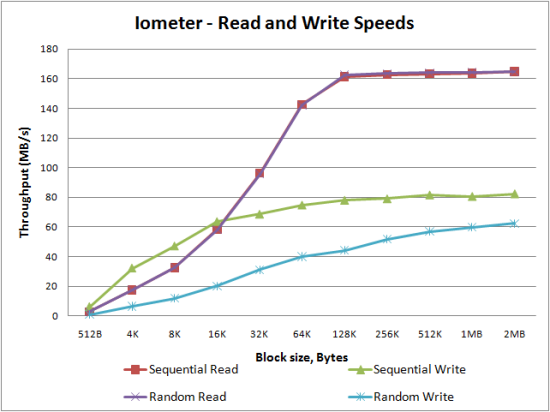
The PX-128M1S's performance was very similar to what we saw in our other tests. With a 2MB block, the drive reached sequential read and write speeds of 164.72 MB/s and 82.47 MB/s, respectively.
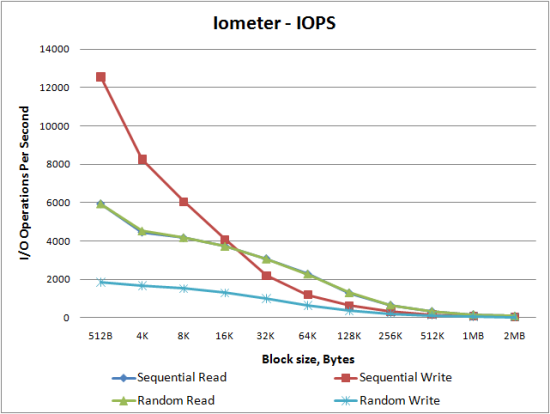
According to Plextor, the PX-128M1S can reach 4300 IOPS when reading and 1300 IOPS when writing 4K blocks. The drive had no problems exceeding these numbers in our tests, reaching 4524 IOPS when doing a random read and 1668 IOPS when doing a random write.


